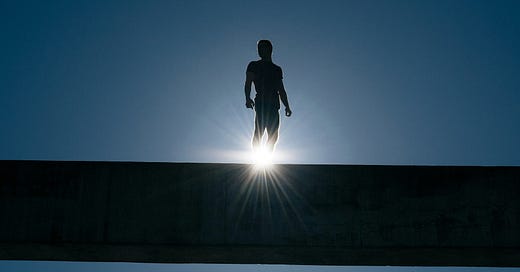In The Presence of Heroes: An Updated Perspective on What It Means To Be Heroic
I was surrounded by heroes this weekend. First responders, healers, veterans, therapists—people who do so that others may continue to be.
In order to do anything, one must first be (learn why here) because, after all, we’re human beings, not human doings. The problem is getting caught up in the daily grind of tasks, urgencies, and general mindlessness. It’s so easy to keep doing, doing, doing to accomplish the next task so you can get to the one after that, and so on. But when does it end? I don’t know of anybody’s last dying words to be, “My only wish is that I had more things to do.”
Maybe you’re an “I’ll-be-happy-when” person. These are people who think they’ll be happy WHEN they make more money, or WHEN they get a new job, or WHEN an annoying colleague stops being so, well, annoying. But the truth is, happiness is present when you’re present, when you’re present enough to enjoy living instead of chasing a perfect idea of it.
Let’s think of this according to the Buddhist concept of no-self or nonself. No-self refers to impermanence, or the constancy of change, meaning, that there is no permanent you. You are not the same person as last month, yesterday, or even a minute ago because, for example, if you’ve read this far, you’ve learned more than had you not opened this article at all. No-self also refers to the interdependency—the cause of, and relation to, other things. In other words, if I see myself as a separate being it’s only because I see others as separate from me. “Me” wouldn’t exist without “they.” From this perspective there is no self, only a constant stream of impermanent causes and effects that are really the interconnectedness of everything.
Are you still there? Did I lose you? I know, this is deep. Stick with me…
So, if we take this concept of no self and apply it to happiness, we wouldn’t know happiness without sadness. We wouldn’t know connection without disconnection, or love without fear. It’s the yin and the yang: by knowing one, you know the other. But the dirty little secret is this: there is no such thing as “other,” because they both must co-exist in order to be.
What this means in terms of finding happiness at work, connection in a relationship, or joy in a hobby, is that you may need to dig a little deeper to find it. But I promise it’s there. Nobody ever said doing the work was easy, for if it were easy, it wouldn’t be considered “work.”
What this has to do with heroes is this…
Heroes facilitate being. A firefighter saves you from a burning home, an EMT saves you from bleeding out after a terrible car wreck. A therapist saves you from your thoughts by offering you coping strategies (some of those are here). What they all afford is another opportunity to be present.
I can’t think of a more precious gift than the gift of presence, of being. If you don't believe me, just think of someone you've lost in your life and what you’d give to just have one more moment with them. Maybe there’s a conversation you wish you had, something to shed light on a dark time in your life. It’s not until someone is gone that the importance of the here and now surfaces. After all, it’s only by understanding absence that we value presence.
It's not easy being present. If you think it is, try meditating and not getting down on yourself when your mind wanders or striving to be somewhere else—physically or mentally, or not thinking about what you want to say next when “listening” to someone speak. It’s all very hard work—work that requires a degree of heroism because, after all, what does it mean to be heroic? In my mind, it means subjugating the self while courageously facing hardship. Meditation can therefore be used as a deliberate practice to cultivate such qualities.
Journal Prompts
Who’s my hero? What qualities do I admire about them? What might I do to personify those qualities? What, if any, fear is associated with doing so?





